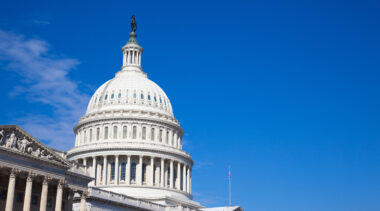Guy Bentley is the director of consumer freedom at Reason Foundation.
Bentley's research focuses on the taxation and regulation of nicotine, tobacco, alcohol, and food. Before joining Reason Foundation, Bentley served as a reporter in London and Washington D.C.
Bentley's work has been featured in The Washington Post, USA Today, Forbes, Time, Business Insider, The Daily Beast, The New York Post, and other publications in the U.S. and U.K.
Bentley graduated with a bachelor's degree in politics and international relations from the University of Nottingham and is based in Washington D.C.
-
Colorado’s proposed flavored tobacco ban would worsen public health and criminal justice inequities
A ban on flavored tobacco products would likely lead to the growth of illicit tobacco markets and more policing in minority communities.
-
Colorado should rethink potential tobacco prohibitions
Such a ban, while well-intentioned, could come with unintended consequences.
-
Testimony: Prohibition of Flavored Tobacco Could Increase Cigarette Use in Connecticut
Prohibition of flavored e-cigarettes, which are overwhelmingly the choice of adult vapers, risks fueling illicit markets, forcing the closure of Connecticut vape shops, and driving vapers back to smoking.
-
Testimony: Hawaii should rethink vaping prohibitions
HB 1570, while well-intentioned, could result in significant negative public health impacts.
-
Testimony: Banning e-cigarettes in Hawaii could negitively impact public health
The prestigious Cochrane Review concluded e-cigarettes are more effective than traditional nicotine replacement therapies for helping smokers quit.
-
Testimony: Arizona should examine the negative impacts that additional nicotine and licensing regulation would bring
If Arizona wishes to continue to reduce the number of deaths from smoking each year, the power to regulate the legal sale of safer nicotine products should be reserved to the state legislature itself.
-
Testimony: Why Maine shouldn’t prohibit e-cigarettes
Prohibition of flavored e-cigarettes risks fueling illicit markets, forcing the closure of Maine’s vape shops, and driving vapers back to smoking.
-
The vaping tax in the Build Back Better plan is a threat to public health
An e-cigarette tax is perfectly calibrated to target working-class voters without a college degree.
-
Denver shouldn’t ban flavored tobacco products
The Denver City Council is pushing a flavored tobacco ban in the hopes it will slash the number of youths experimenting with e-cigarettes. But data shows that other states and cities have seen negative consequences from such policies.
-
House Democrats’ tax on e-cigarettes would lead to millions more smokers
This proposed tax seems certain to contribute to a greater incidence of lung diseases going forward.
-
Even the FDA can’t convince anti-vaping advocates e-cigarettes present public health benefits
The FDA has finally approved an e-cigarette as "appropriate for the protection of public health".
-
Four reasons to reject a federal tobacco tax increase
The plan currently being considered in Congress would increase taxes on all tobacco and nicotine products.
-
Congress considers tobacco tax increase
Cigarette taxes would double to more than $2 per pack under the House proposal.
-
The FDA has decimated the e-cigarette market
The FDA has not authorized a single e-cigarette for sale and denied more than a million vape products from the market.
-
FDA needs to embrace vaping’s potential to improve public health
Vaping is beyond doubt safer than smoking and has proved incredibly effective at helping people quit smoking traditional cigarettes.
-
Setting the record straight on heated tobacco products
The FDA says heated tobacco products are safer than traditional cigarettes.
-
Testimony: Utah Considers Nicotine Content Limit for E-Cigarettes
Prohibiting e-cigarettes with a nicotine content that effectively competes with combustible cigarettes could prevent smokers from switching to safer alternatives.
-
Testimony: Rhode Island Legislation Could Ensure Access to Safer Alternatives to Combustible Cigarettes
Rhode Island's continued prohibition of all e-cigarette flavors raises the risk of illicit products falling into the hands of both youth and adults.


















